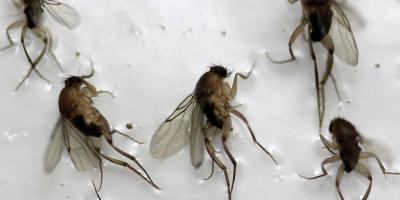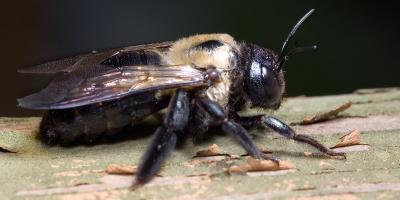Weird Things that Attract Mosquitoes

“Know thy enemy,” the great military strategist Sun Tsu once said; and with summer now upon us, that can mean only one thing -- it’s time to learn about mosquitoes.
Sun Tsu didn’t mean to make friends with the enemy, of course. He meant that in order to defeat the enemy, one must first understand them: How, why and where do they attack? What are their weaknesses and, more importantly, what are their strengths?
We may never win the war against mosquitoes, but the annual summer battle has begun. Here’s everything you need to know about these summertime flying foes…
Mosquitoes Find Their Strength in Numbers
Let’s start with the enemy’s strongest suit -- there are a lot of mosquitoes in the world, including New England, and every year it seems like there are more. Although mosquito populations can and do vary from year to year, mosquito numbers have been trending up over the last decade or so. Even worse, global efforts to stop their spread have had little effect on their numbers.
Why? Lots of reasons, like hotter and wetter summers, human development and just the regular ebb and flow of nature. And while there are ways to cut down on mosquito populations in smaller areas -- like your yard -- the first and most important part of your battle plan is to minimize the number of mosquito bites you suffer this season.
Mosquitoes Bite. But Whom?
One of the best ways to protect yourself against mosquito bites (and the diseases they carry) starts with understanding what attracts them to you -- to people, in general -- in the first place. You might not know it, but what you wear, how you smell, what you eat, and even how much you breathe all send signals that mosquitoes interpret as “dinner time.”
And just like humans deciding on a restaurant, mosquitoes have preferences, too. Take one signal that mosquitoes look for: the carbon dioxide that people exhale with every breath. Everyone breathes out CO2, but some people expel more than others. More active people, for example, will take in more oxygen… at least while they’re working out. (Ironically, they’re actually known to breathe less than the average non-active adult since their bodies more efficiently process oxygen). Meanwhile, someone with a larger body mass will breathe more than their smaller neighbors, at rest or otherwise.
Body odor, as well, can be more or less appealing to mosquitoes looking for a bite to eat. People who secrete higher levels of lactic acid or ammonia, for example, may draw more mosquitoes.
Mosquitoes also seem to prefer people who have been drinking alcohol, although scientists still aren’t sure why.
Other factors including body heat, the amount of water vapor our bodies emit, your body’s chemical composition, blood type, and even whether or not you’re pregnant can affect your odds of getting a mosquito bite.
However, We’re More Alike than Different
Despite the differences that make some people more attractive to mosquitoes than others, the truth is everyone is susceptible to mosquito bites. That’s why everyone needs to practice basic bite prevention. Insect repellent should be on every New Englander’s summertime shopping list, of course, but it doesn’t end there.
Professional mosquito treatment on and around your yard can help cut mosquito populations down by as much as 90%. You’ll still want to spray yourself before heading outside your property lines, but at least you can take it easy with the DEET while enjoying your own yard.
Treat yourself to a guaranteed 90% mosquito population knockdown by contacting our team for your free quote on professional mosquito control.



